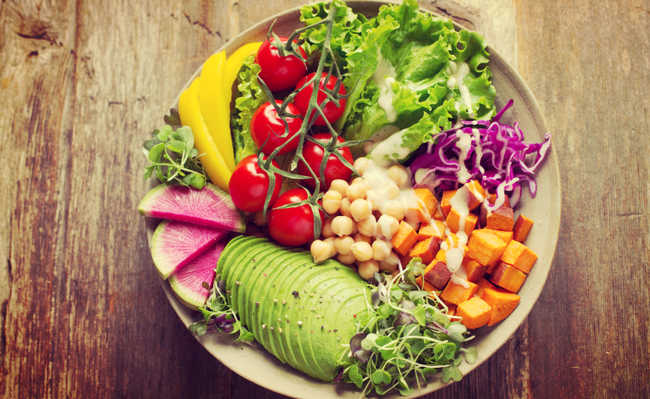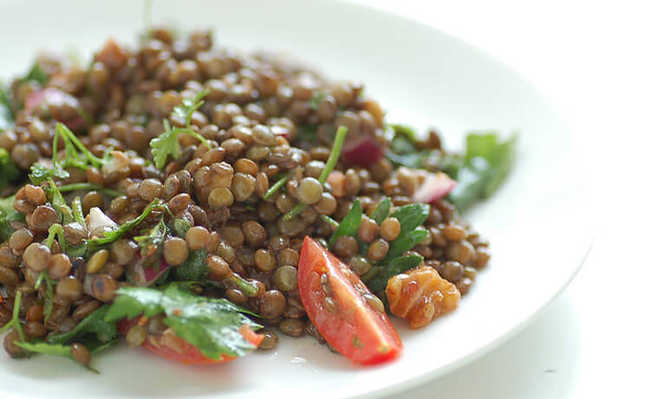Vegan philosophy: know and ask your questions
The main precept of veganism is respect for animals

Resized image of Anna Pelzer, is available on Unsplash
Have you ever heard about the vegan philosophy? Well, know that veganism is a lifestyle, based on food and consumption of products that respect animals, which has been gaining many followers.
The greatest principle of vegan philosophy is equality, both between humans (not having any kind of prejudice) and between humans and animals, as adherents believe that everyone is a conscious and sensitive being. Vegans believe that it is unfair to own and use animals for their own enjoyment, since, with the emergence of new technologies, there are alternatives to these practices.
But the vegan lifestyle can raise many questions. Let's go to them:
What is the difference between vegetarian and vegan?
There are two types of vegetarians: ovolactovegetarians are those who only do not eat meat, whether red, chicken or fish and seafood. Strict vegetarians also exclude eggs, milk, honey and any other animal ingredients from the diet. Vegan is who, in addition to following a strict vegetarian diet, seeks to boycott all forms of exploitation of animals: they do not wear fur, wool, leather or silk clothing, do not use products tested on animals, do not go to rodeos, do not fish, etc. Vegans must pay attention to the labels of all products, as many ingredients of animal origin can come with the name “disguised” among the ingredients. For example, the insect cochineal colorant can appear as natural coloring carmine or cochineal carmine, natural carminic acid coloring, INS 120 or CI 75470 (the latter is in cosmetics).
Is the nutrition coming from this food enough?
According to the fans, it is enough to have a very varied diet. Grains, nuts and dark vegetables are the minimum needed to replace meat in the diet. The only nutrient that is not present in plant foods is vitamin B 12, but it is extracted from bacteria, so there are vegan supplements that can be taken with the guidance of a nutritionist. It is very important to have this orientation because the daily need for nutrients varies according to the height and mass of each person. In addition, it is necessary to take care to have a balanced diet, since veganism is not synonymous with good health: fried foods, sweets and industrialized foods are not at odds with the vegan philosophy if they do not contain animal-derived ingredients, even so, they usually are harmful to health. Remember that anything too much is bad for you.
How is the relationship between vegans and animals that pose risks to our health, such as rats and cockroaches?
This is a controversial issue even among vegans themselves. On the one hand, there are those who say that if all animals have a right to life, we shouldn't kill any, no matter what the conditions. On the other hand, the argument that the problem is risking our health for them, that would be extremism and even imprudence. There was never a consensus on which attitude is the most ethical (from a vegan point of view) when finding an unwanted animal at home, but there is one thing that everyone agrees on is that the best thing is to prevent these animals from reaching us . Vegans or not, we must all take precautions such as cleaning the house, leaving trash cans and water tanks well covered (by the way, not leaving any source of still water), covering the holes and cracks in the walls and floors, using repellents natural, among others.
Can vegans have pets?
Yes, they can adopt and sterilize (“castrate”). Spaying pets is very important to prevent illness. It reduces the chances of breast or prostate tumors by up to 90%, depending on the stage of life in which the surgery is performed. In addition, sterilization controls the population of dogs and cats, preventing the puppies that would have been generated from being abandoned on the streets.
Buying animals is not accepted by the vegan philosophy, as this would imply that they are material goods, in addition to supporting the exploitation of breeders, who are treated as production animals.
Note: The link takes you to a page about neutering cats, but the same goes for dogs, with only a slight difference in ideal age. Consult a veterinarian.
What is the relationship between veganism and the environment?
Vegetable food production requires much less land space than animal food production. For example, in one hectare of land it is possible to plant 42,000 to 50,000 tomato plants or produce only an average of 81.66 kg of beef per year. Thus, strict vegetarian diet encourages a reduction in deforestation.
The water savings are also quite significant: to produce a kilo of soy, 500 liters of water are used, while for a kilo of beef, 15 thousand liters are needed.
My friend decided to go vegan. Can I invite you to the barbecue?
Yes No problems. If you understand that he will have lunch before he goes or bring his own skewers. But some vegans refuse to go to barbecues because they end up having an aversion to even looking at meat.
What does vegan activism mean?
The simple act of having vegan habits is already a form of activism, as the person starts to have different practices in favor of a cause. Spreading the ideology is also very good, as long as it is done in moderation, without disturbing others, just informing. Eating something while hearing about the cruelty behind the ingredients is very indigestible and not a good way to go, because being a vegan because of the feeling of guilt ends up becoming a punishment. “I want it but I can't” doesn't have to be a vegan's thought. Transformation is slow and includes not wanting to eat, dress, or be entertained by what involves exploration. The vegan doesn't feel like it, he just doesn't want to, because he knows the origin of it and doesn't support it. There are many vegan blogs that better explain the ideology, like GoVeg.
Some tips for non-vegans
Just as it's bad to eat meat when hearing about cruelty, so is eating vegetables when hearing about a lack of protein. Don't make fun of or make empty criticisms. Inform yourself, question, understand.
Another very unpleasant thing is to talk about animal exploitation hidden in every corner. Bovine fat in the composition of candles is nothing new. There's no such thing as 100% veganism, but that's not the only reason nobody should do anything.
Curiosity: some celebrities who adhered to the vegan philosophy:
- Anne Hathaway - actress
- Mike Tyson - Fighter
- Ellen DeGeneres - presenter
- Mayim Bialik - actress
- Rita Lee - singer
- Natalie Portman - actress
- Lea Michelle - actress
- pink - singer
- Peter Dinklage - actor










